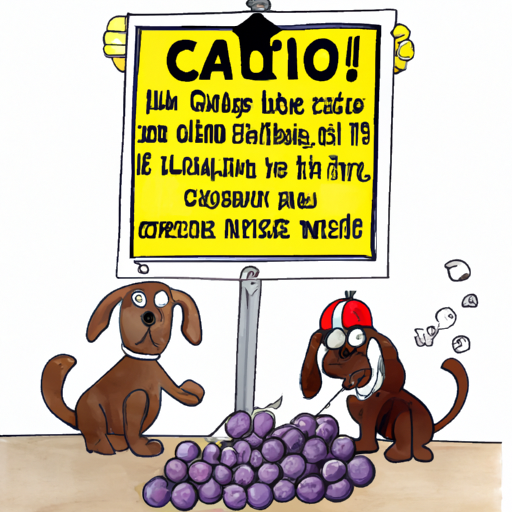As a caregiver for your furry friend, you need to know what’s safe and what’s toxic for them to consume. Just like humans, different dogs have different nutritional needs and sensitivities. However, certain foods are universally harmful to dogs and should be avoided at all costs. This guide will walk you through eight common foods that dogs should not eat.
1. Chocolate and Caffeine
Chocolate and caffeine contain substances called methylxanthines, which can cause a myriad of health problems in dogs, even in small amounts. Symptoms of methylxanthine poisoning include:
- Vomiting
- Diarrhea
- Panting
- Excessive thirst and urination
- Hyperactivity
- Abnormal heart rhythm
- Seizures
- And in severe cases, death
2. Grapes and Raisins
The exact reason why grapes and raisins are toxic to dogs is still unknown, but even small amounts can cause severe kidney damage. Symptoms can include:
- Vomiting
- Diarrhea
- Lethargy
- Decreased appetite
- Abdominal pain
- Decreased urine production
3. Onions and Garlic
Onions, garlic, and other foods in the Allium family can damage your dog’s red blood cells if eaten in large quantities, leading to anemia. Signs of anemia include:
- Weakness
- Loss of appetite
- Pale gums
- Fainting
- Dark-colored urine
4. Avocado
Avocados contain a toxin called persin, which can cause vomiting and diarrhea in dogs. Additionally, the large pit can pose a choking risk or cause an intestinal blockage if swallowed.
5. Alcohol
Alcohol and foods containing alcohol can cause vomiting, diarrhea, decreased coordination, central nervous system depression, difficulty breathing, tremors, abnormal blood acidity, coma, and even death.
6. Xylitol
Xylitol, a common sweetener in many products like gum, candy, baked goods, and toothpaste, can cause insulin release in dogs, leading to liver failure. The increase in insulin can lead to hypoglycemia (lowered sugar levels). Initial symptoms include vomiting, lethargy, and loss of coordination.
7. Dairy
While not immediately life-threatening, many dogs are lactose intolerant and struggle to digest dairy products. This can lead to upset stomach, diarrhea, and other gastrointestinal problems.
8. Raw Meat and Eggs
Raw meat and eggs can contain bacteria like Salmonella and E. coli, which can be harmful to pets and humans alike. Raw eggs also contain an enzyme that can lead to skin and coat problems.
FAQ’s
Q: Can my dog have a little bit of chocolate?
A: No, even small amounts of chocolate can be harmful to dogs. Always keep chocolate out of their reach.
Q: My dog ate grapes. What should I do?
A: If your dog consumed grapes or raisins, contact your vet immediately.
Q: Can dogs eat cooked onions or garlic?
A: No, onions and garlic are harmful to dogs, whether they are raw or cooked.
Q: Is avocado really dangerous for dogs?
A: Yes, the persin in avocados can cause health issues, and the pit can be a choking hazard.
Q: Can dogs have any kind of alcohol?
A: Absolutely not. Alcohol is extremely harmful and potentially deadly to dogs.
Q: My dog ate something with xylitol. What should I do?
A: If your dog ingests xylitol, call your vet or pet poison control immediately.
Q: Can dogs eat cheese?
A: While some dogs can handle small amounts of cheese, many are lactose intolerant and may experience gastrointestinal upset.
Q: What if my dog eats raw eggs or meat?
A: Raw eggs and meat can contain harmful bacteria. If your dog consumes raw eggs or meat, monitor them for signs of illness and consult your vet if you have concerns.
Remember, when in doubt, it’s always best to consult with your vet about what is safe and healthy for your dog to eat.



